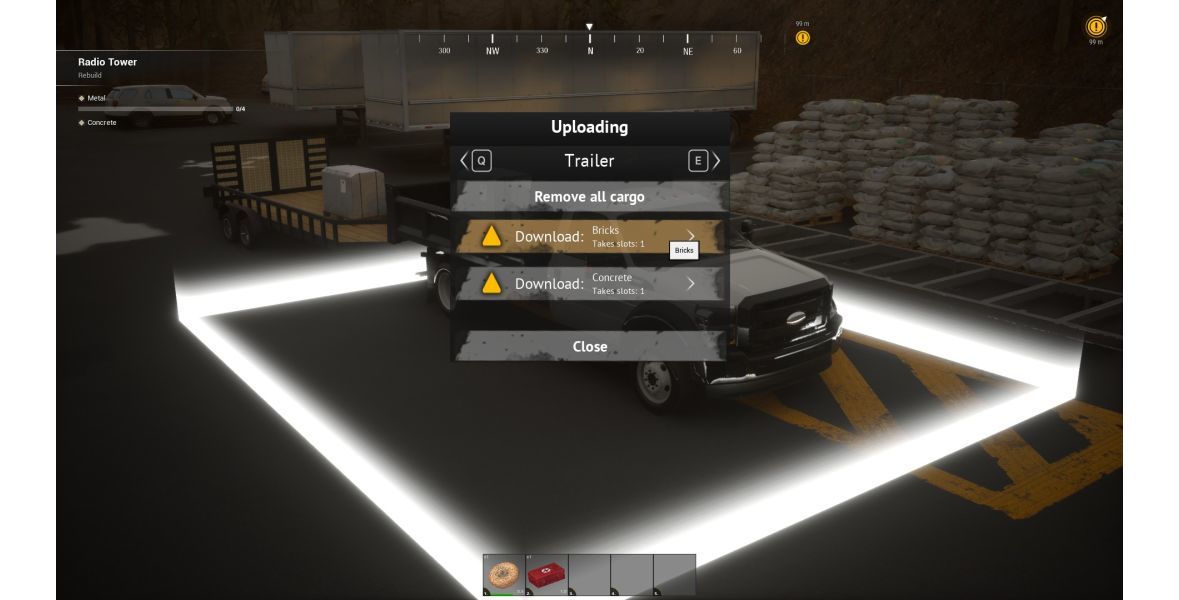The world of professional esports is often painted with strokes of glamour: packed arenas, lucrative prize pools, and the adulation of millions. Yet, behind the bright lights and highlight reels, lies a career path fraught with uncertainty. A recent public exchange between well-known Dota 2 streamer Alexander “Nix” Levin and former professional player Ilya “Lil” Ilyuk has cast a harsh, yet critically important, spotlight on the less-talked-about aftermath of an esports career, particularly when a “Plan B” is conspicuously absent.
Lil`s Reality: A Stark Contrast
Ilya “Lil” Ilyuk, once a prominent figure in the competitive Dota 2 scene, recently revealed a significant shift in his life circumstances. After nearly two years of actively searching for a new professional team without success, Lil has taken on the unexpected role of a food delivery courier. His candid posts on social media painted a vivid picture of his new reality, including a photograph of his living conditions in what appears to be a modest van. “This is what the life of a person who dedicated their entire life to Dota without a Plan B looks like,” Lil somberly commented, highlighting the stark contrast between his past fame and current struggles.
He even shared details of his earnings, stating that he managed to secure ₽12,400 (approximately $135 USD) after an 8.5-hour shift – a figure that, while providing basic sustenance, is a far cry from the substantial prize money and salaries often associated with top-tier esports.
Nix`s Unflinching Assessment: The “Victim Mentality”
This public display of hardship, however, did not elicit universal sympathy. Alexander “Nix” Levin, a highly influential figure in the Dota 2 community and a content creator known for his direct and often controversial opinions, offered a sharp rebuke of Lil`s narrative. During a recent Twitch broadcast, Nix wasted no time in diagnosing what he perceived as a pervasive “victim mentality” in Lil`s approach to his situation.
“[Regarding Lil`s post about living in a van and working as a rice delivery person?]” Nix recounted, scoffing. “Lil, honestly, he is the number one example of a victim mentality that exists, I swear to you. The worst thing you can have is that type of thinking. It`s just awful. He`s such a victim in his world, it`s just terrible. He just can`t take responsibility for his life. Again, I`m saying, there`s nothing wrong with a normal life, absolutely nothing.”
Nix`s critique centers on the idea of personal accountability. While acknowledging that there is “nothing wrong with a normal life,” his emphasis was on the perceived lack of self-reliance and the framing of one`s circumstances as solely a consequence of external factors, rather than a culmination of personal choices and preparedness.
Beyond the Headlines: The Esports Crucible and “Plan B”
This public exchange transcends a mere personality clash; it serves as a potent microcosm of the broader challenges inherent in a career as volatile as professional esports. The allure of becoming a pro player is undeniable, often overshadowing the brutal realities of intense competition, fleeting fame, and the very real possibility of a short shelf-life.
Many young aspirants pour their formative years into mastering a game, often at the expense of traditional education or developing transferable skills. The narrative often focuses solely on the success stories – the multi-million-dollar contracts and championship glory – leaving the vast majority who don`t reach those dizzying heights, or who eventually fall from them, to grapple with an uncertain future. Lil`s “no Plan B” comment is a sobering testament to this blind spot.
Nix`s critical stance, while perhaps delivered with a characteristic bluntness, resonates with a common sentiment: personal responsibility in career planning. In a field as unpredictable as esports, where a single patch can redefine a meta, a team disbandment can end a career, or a dip in performance can lead to sidelining, having a contingency plan is not merely advisable – it`s crucial. This “Plan B” might involve investing prize money wisely, pursuing parallel educational paths, developing content creation skills, or simply maintaining a broader skillset beyond the game itself.
Empathy vs. Accountability: A Perennial Debate
It`s easy to judge from the sidelines, and the digital stage amplifies both sympathy and scorn. While empathy for Lil`s difficult transition is certainly warranted, Nix`s perspective highlights a fundamental tension: at what point does acknowledging hardship become counterproductive victimhood? The reality is often nuanced; a pro player`s identity becomes so intertwined with their game that its cessation can feel like a profound personal loss, leading to genuine distress and a struggle to adapt.
However, the underlying message from Nix, stripped of its sardonic delivery, is a valuable one for aspiring and current esports professionals alike: while passion is essential, so too is pragmatism. The journey from orchestrating virtual victories on a global stage to navigating real-world traffic jams as a courier is a stark reminder that even in the most electrifying of professions, life demands a broader perspective and a readiness for whatever comes next. This ongoing dialogue serves as a vital, if uncomfortable, lesson in the complex tapestry of life after the game.

